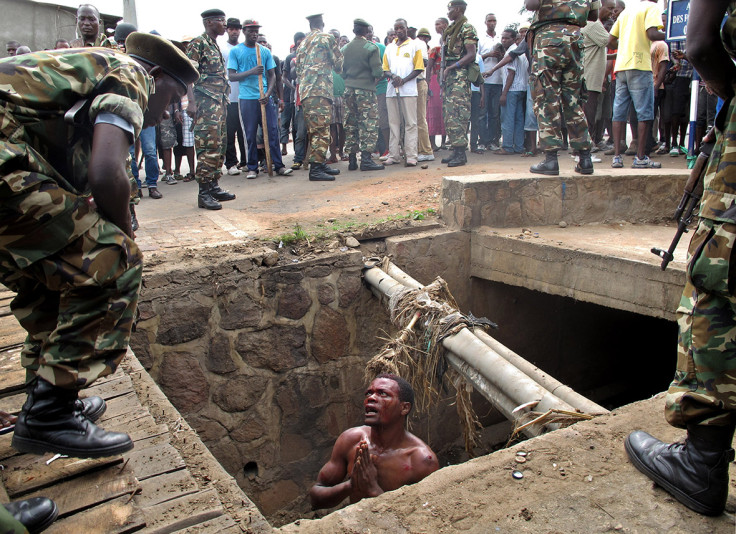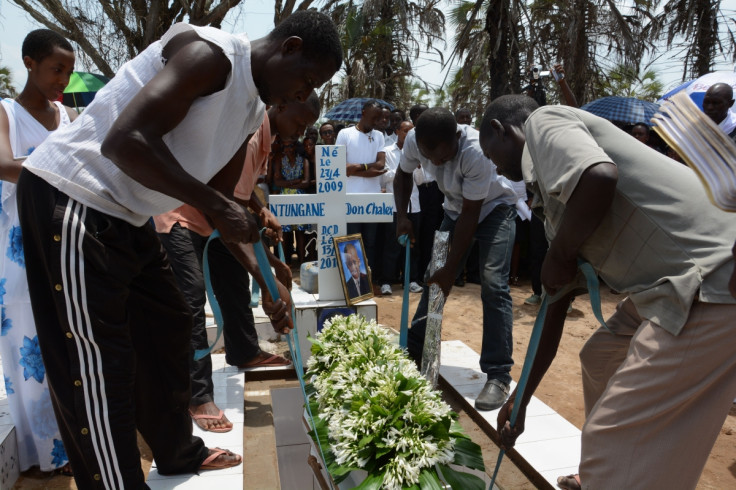Burundi: Are the eight stages of genocide applicable to the nation's spiralling violence?

The founder of Genocide Watch has warned a genocide is in preparation in Burundi and the United Nations (UN) may be too late to prevent it, but are the eight stages of a genocide applicable to the small African nation's deepening deadly violence?
The bloody crisis that has killed up to 900 people pits supporters of President Pierre Nkurunziza against those who say that his re-election in July 2015 for a third term violated the constitution of a nation still reeling from a civil war that occurred between 1993 and 2005, leaving 300,000 people dead. After a failed coup, the government intensified its crackdown and most of those arrested or disappeared today are young men and women accused of participating in or supporting opposition groups.
IBTimes UK spoke to Gregory Stanton, research professor in genocide studies and prevention at the Institute for Conflict Analysis and Resolution of George Mason University, Virginia, US, who wrote Eight Stages of Genocide: How Governments Can Tell When Genocide Is Coming and What They Can Do To Stop It when he served as Foreign Service Officer in the State Department before becoming the Co-Chair of the Washington Working Group for the International Criminal Court (ICC).
According to the expert, genocide proceeds through a predictable eight-stage process, and while no one in the international community has officially declared that a potential genocide is under way, Stanton said "so many of the stages of genocide are already clearly happening in Burundi". He applied the situation in Burundi to the eight stages of genocide, as follows:
1. Classification: "All cultures have categories to distinguish people into 'us and them' by ethnicity, race, religion, or nationality. In Burundi, we have those divisions, and people need to accept to speak about 'Hutu' and 'Tutsi' to overcome this issue, and find a transcendent identity."
2. Symbolisation: "This is the use of symbols to express a classification: we give names to our symbols, and here, we call people 'Tutsi' or 'Hutu'. Classification and symbolization are universally human and do not necessarily result in genocide unless they lead to the next stage, dehumanization."
3. Discrimination/ Dehumanization: "That is where the downward cycle of genocide really starts getting fast and that's where we are, for sure, in Burundi." Révérien Ndikuriyo, a ruling CNDD-FDD party Senator, who was elected as President of the Senate, for instance, publicly said "These people (Tutsis) are only good for dying" , "You have to pulverise and exterminate them" and "We will go to work" (using the Kirundi word Gukora, a Kinyarwanda slang word meaning 'to kill', previously used by Hutu extremists and the Interahamwe in the run-up to the Rwanda genocide).
"When he starts using words like that, he is treating those people as if they were not human – and it allows those committing the genocide to think they are doing good, by 'purifying' or 'cleansing' the society, or get rid of the group they believe has created all the problems. To overcome it, you need to use punishments for those who use these words, and if they become incitements to carry out killings – and I believe what Ndikuriyo is saying are very clearly incitements – those people should be prosecuted. That is illegal under the Genocide Convention and against Genocide law – and Burundi has a law against genocide and is a member of the ICC.

4. Organisation: "Genocide is a group crime, where a group plans killings against another group and we have such a group in Burundi right now, and they are called the Imbonerakure, they are a militia trained to kill – let's call it what it is. It is precisely parallel to the Interahamwe in Rwanda. This is an early warning sign of genocide and the United Nations is well aware of it."
5. Polarization: "That is the stage when one group tries to truly divide the society, where anyone in the middle, any moderate is arrested or assassinated. That's why the first people to be killed in any genocide are moderates from the perpetrator's own group, and that's why people tried to kill Pierre-Claver Mbonimpa, a Hutu human rights activist, or why Zedi Feruzi, a Muslim Hutu and head of the Union for Peace and Development (UPD), was assassinated in May. It's a very serious warning sign of upcoming genocide."
6. Preparation: "I believe strongly that it is well under way in Burundi. These are not accidental deaths. They are documented, evidenced and organisations such as Burundi Crime Watch can take these cases to trial. I believe that the people committing crimes in Burundi now will end up in the dock (at the ICC). We are the preparation stage, no question about it – it is being planned. The persecution stage is the next stage – the stage just before the actual mass killings."
7. Extermination: "The actual genocide – and lawyers believe they cannot use the 'genocide' word until we get to that stage, but by using proof beyond reasonable doubt, it means it is just too late. Let's start using the word when we have probable cause to believe that it is being perpetrated. It should already be investigated, prosecuted and prevented. We can't wait until it's over.
"I would suggest that, because we are in the early stages of genocide in Burundi, we should take every step we can to prevent and stop it. We need to put diplomatic pressure on the African Union and the UN to be ready because not only should there be preventive actions for people agree to peaceful solutions rather than sending troops to stop it."
8. Denial. " It is among the surest indicators of further genocidal massacres. The perpetrators of genocide dig up the mass graves, burn the bodies, try to cover up the evidence and intimidate the witnesses. They deny that they committed any crimes, and often blame what happened on the victims. They block investigations of the crimes, and continue to govern until driven from power by force, when they flee into exile."
The response to denial is punishment by an international tribunal or national courts – where the evidence can be heard, and the perpetrators punished, Stanton added.
© Copyright IBTimes 2024. All rights reserved.







